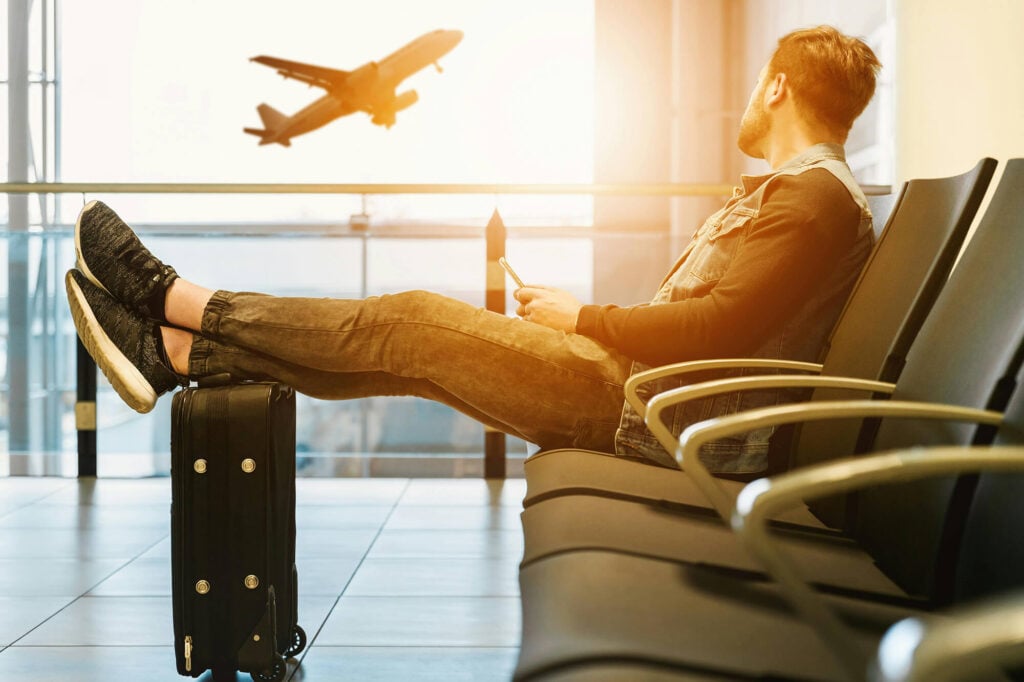Israel, England, Denmark, Austria, India, New Zealand, Mexico, Egypt, Romania, the Philippines, and Pakistan. Those are the nations I’ve worked or managed a remote team from in recent years.
No, I’m not some multinational executive. I’m an entrepreneur who had the right friends, at the right time, and a younger person’s zeal for adventure.
My wanderlust came calling in the mid-’90s, when most of my friends were headed in precisely the opposite direction. As they searched for Silicon Valley talent, I transplanted myself, my family, and my digital agency, Netconcepts, to Auckland, New Zealand for nearly a decade.
More than one friend predicted the move would destroy my company. Netconcepts lost more than a few of its clients, and the first few months were achingly uncertain. But the overhead savings added up, and by the time I moved back to the U.S. in 2007, Netconcepts had cracked $6 million in revenue and was expanding faster than ever.
Although I sold the company in 2010, I gained from it something more important than money: I found out that, with planning and self-care, the road is a fine place from which to run a business.

Question Connectivity
The road is a more connected place than it was in the ‘90s or even 2010. That doesn’t mean, however, that you’ll never find yourself scrounging for Wi-Fi in an unfamiliar city.
More than electricity, a computer, a hotel room, or anything else you might need to run your company from another country, internet access is the great unknown. Don’t book a flight without knowing its Wi-Fi availability, and don’t dream of showing up at the airport without understanding your destination country’s connectivity picture.
Remember, too, that the internet isn’t free and open in many parts of the world. China, for example, censors Google, Facebook, Instagram, and thousands more sites that host content the one-party state deems dangerous. Even in Europe, 31 countries restrict internet access to some degree. Although you can use a virtual private network to bypass certain content blocks, VPNs are restricted in many countries.

Ask for Help From Afar
No matter how well thought out your Wi-Fi plan is, the truth is that you’re sometimes going to have to do without. What’ll you do when a crucial email comes through and you’re miles from the nearest internet connection?
If you’ve thought ahead, you’ll have an assistant handling it. When I travel, I ask my virtual assistant to review my emails and place urgent ones in an “action” folder. That way, when I’m back online, I can tackle the important ones without worrying about “FYI” conversations.
If you’re an executive who can delegate those tasks to your team, do it. If you’re a solopreneur or consultant, trust me that an assistant is worth the money. Avoid major marketplaces like Upwork, where you can be dropped by a moment’s notice for a client who pays slightly more. Instead, advertise in places like onlinejobs.ph, which is based in the Philippines, or even Craigslist. Vetting candidates on smaller sites can take more time, but in my experience, you’re also more likely to find quality candidates.

Work When You Can
Your assistant may be able to water your plants and watch your inbox, but your job is still up to you. Getting it done while on the road is all about adapting to your situation.
Flight delayed? Load up your laptop and review a proposal. In-flight Wi-Fi is worthless? Dive into that 50-page report you’ve been putting off all week. Have a long train ride with a space to yourself? Squeeze in some “deep work,” which productivity expert Cal Newport says must be “performed in a state of distraction-free concentration.”
As long as you’re prepared, travel provides a surprising number of deep-work opportunities. I download my emails using the Mac Mail app and work through tough ones while offline, for instance. Chrome users will find a similar feature in Gmail. You might be surprised at how much you get done without the “candy shop” distractions of social media.

Eat Well and Hydrate
If you’re the type to grab a burger and a beer at the airport lounge while waiting for a flight, be warned that it will catch up to you. A study conducted by Columbia University’s Mailman School of Public Health found that business travelers who spend 14 or more nights away from home each month are more likely to be obese, anxious, depressed, alcohol-dependent, physically inactive, and sleep-deprived. The more study participants traveled, the more likely they were to present those conditions.
The devil-may-care diet is a recipe for irritability, lack of energy, and poor sleep — which, combined with jet lag and the stresses of a new place, can kill your productivity. The good news? A little planning is all it takes to beat bad habits.
Before you leave, research local food options, particularly supermarkets and street markets that sell fresh fruits and vegetables. Pack snacks for flights and be sure to fill up your water bottle before hopping on the plane. Avoid alcohol and caffeine, which may feel good at the time but will come back to haunt you.

Splurge a Little
If you’ve sworn off coffee and beer, it goes without saying that you’ll need other ways to treat yourself. Why not pick up some helpful gadgets to make your trip less taxing? A neck pillow and set of noise-cancelling headphones do wonders on long flights.
Other tricks, like vacuum bags, may not make you feel better in the moment, but they can prevent stress all the same. Buying a vacuum sealer is cheaper than unexpectedly having to check a bag on an international flight.
Don’t forget about productivity tools, either, such as battery packs that can help you cross outlet deserts with your smartphone still alive and the Focus@Will music service or the Noizio white noise app that will keep you in a flow state rather than knock you out of one, like most music does.
Can traveling for work be stressful? Of course. Does it have to be a miserable, unproductive, deep-fried slog? Not even. In fact, with planning and a positive outlook, it can bring the adventure back to business.







